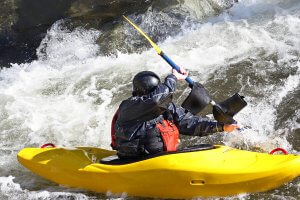Extreme Sports, Laws, and Regulations

Extreme sports are often practiced by people who love danger and the adrenaline rush. But are there laws regulating extreme sports? In truth, it’s very hard to find one-hundred-percent applicable legislation. Here comes into play, laws, regulations, companies, countries, associations and a great number of factors difficult to understand.
Actually, we could say that most of these alternative practices aren’t considered by many as ‘sports’. The complexity of this topic increases according to the reality of each activity.
For example, skateboarding was only just recognized by the International Olympic Committee in 2016. Of course, for practitioners of each discipline, having an applicable regulation is an important goal to work for, as it’ll recognize their discipline as a proper sport.
You might also enjoy: The Benefits of Skateboarding
What’s considered sport?
The concept of ‘sport’ is the first of many obstacles towards a proper regulation on extreme sports. Many international organizations and associations define ‘sports’ as a regulated physical activity. The European Charter of Sport emphasizes that sports are activities that lead to improvements in the physical and mental condition of the athlete.
Of course, all sports activities usually go through a very severe process in order to be institutionalized and regulated. People who practice extreme sports in widely different places and use very different equipment. That’s why traditional concepts are usually inefficient and incomplete to regulate the practice of extreme athletes.
Extreme physical activity is considered as a sport among its followers mainly due to their popular nature. However, many times, extreme physical activities go against the concepts, standards, and regulations of traditional disciplines. This is why they now need some special and uniquely designed regulations.
The first steps of extreme sports
Many sports are born without having any regulation at all. Always, many problems arise when regulating a previously free-practiced sport. There could be differences between practices according to the places they’re practiced at. Still, the need to institutionalize a sport is what encourages its practitioners to form national associations.

We can see this process when we study practices such as base jumping. In Spain, there’s the Spanish Association of Base Jump, which brings together its practitioners. At the same time, these national associations are the ones that organize and host international events and competitions.
When it comes to extreme sports, most of the time private companies are the ones hosting events. These companies are responsible for guiding clients in each discipline. This happens a lot, for example, with skydiving. Regulating skydiving is a paramount challenge, as there are literally hundreds of private companies that offer this service in each country.
Extreme sports companies
National laws usually establish certain protocols regarding the safety of people and consumers. In the case of extreme sports, security demands usually involve extraordinary expenses. The payment of special medical insurance, having trained personnel and safety implements implies a substantial investment.
Materials and equipment play a central role in many extreme sports. In general, the minimum regulation of these sports establishes certain rules regarding equipment and accessories. In the case of companies, they must use approved implements and in good condition.
Establishing responsibilities
Another fundamental aspect has to do with determining legal responsibility in case of accidents. In general, companies who offer extreme sports services prepare contracts in which they hold the client responsible.
However, the responsibility doesn’t always lie with the client, even after signing the contract. Each death or accident due to these disciplines entails a criminal investigation.
Another aspect to consider is that every country has different legislation. Therefore, associations and companies who promote and work with high-risk sports don’t work in exactly the same ways around the world. If a government entity prohibits jumping in a certain area, athletes and companies should be aware of this and avoid practicing around that area. These are regulations to protect the environment, but also the practitioners.
Discover more: Tips for Doing Sports in the Summer
Status of some extreme sports in Spain
Currently, extreme sports in Spain are undergoing some changes when it comes to regulations and legislation. This is the current situation of some of these disciplines in Spain:
- Base Jump: there’s an association that gathers base jumpers in Spain. Plus, the association is working to gather worldwide athletes holding international championships. However, base jumpers must comply with security regulations. Also, the state regulates the places where it’s dangerous to make the jumps.

- Snow sports: in Spain, there are special stations for skiing and snowboarding, among others. These have an operating regulation.
- Hiking: there’s the Spanish Committee of Mountain Sports and Climbing Federation. This committee regulates trekking and hiking.
As you can see, there are many factors to be considered when it comes to regulating extreme sports. Undoubtedly, specialists and governments have a long way to go in order to properly regulate these dangerous practices. Still, in the next few years, there will probably be a much clearer law in place.
Extreme sports are often practiced by people who love danger and the adrenaline rush. But are there laws regulating extreme sports? In truth, it’s very hard to find one-hundred-percent applicable legislation. Here comes into play, laws, regulations, companies, countries, associations and a great number of factors difficult to understand.
Actually, we could say that most of these alternative practices aren’t considered by many as ‘sports’. The complexity of this topic increases according to the reality of each activity.
For example, skateboarding was only just recognized by the International Olympic Committee in 2016. Of course, for practitioners of each discipline, having an applicable regulation is an important goal to work for, as it’ll recognize their discipline as a proper sport.
You might also enjoy: The Benefits of Skateboarding
What’s considered sport?
The concept of ‘sport’ is the first of many obstacles towards a proper regulation on extreme sports. Many international organizations and associations define ‘sports’ as a regulated physical activity. The European Charter of Sport emphasizes that sports are activities that lead to improvements in the physical and mental condition of the athlete.
Of course, all sports activities usually go through a very severe process in order to be institutionalized and regulated. People who practice extreme sports in widely different places and use very different equipment. That’s why traditional concepts are usually inefficient and incomplete to regulate the practice of extreme athletes.
Extreme physical activity is considered as a sport among its followers mainly due to their popular nature. However, many times, extreme physical activities go against the concepts, standards, and regulations of traditional disciplines. This is why they now need some special and uniquely designed regulations.
The first steps of extreme sports
Many sports are born without having any regulation at all. Always, many problems arise when regulating a previously free-practiced sport. There could be differences between practices according to the places they’re practiced at. Still, the need to institutionalize a sport is what encourages its practitioners to form national associations.

We can see this process when we study practices such as base jumping. In Spain, there’s the Spanish Association of Base Jump, which brings together its practitioners. At the same time, these national associations are the ones that organize and host international events and competitions.
When it comes to extreme sports, most of the time private companies are the ones hosting events. These companies are responsible for guiding clients in each discipline. This happens a lot, for example, with skydiving. Regulating skydiving is a paramount challenge, as there are literally hundreds of private companies that offer this service in each country.
Extreme sports companies
National laws usually establish certain protocols regarding the safety of people and consumers. In the case of extreme sports, security demands usually involve extraordinary expenses. The payment of special medical insurance, having trained personnel and safety implements implies a substantial investment.
Materials and equipment play a central role in many extreme sports. In general, the minimum regulation of these sports establishes certain rules regarding equipment and accessories. In the case of companies, they must use approved implements and in good condition.
Establishing responsibilities
Another fundamental aspect has to do with determining legal responsibility in case of accidents. In general, companies who offer extreme sports services prepare contracts in which they hold the client responsible.
However, the responsibility doesn’t always lie with the client, even after signing the contract. Each death or accident due to these disciplines entails a criminal investigation.
Another aspect to consider is that every country has different legislation. Therefore, associations and companies who promote and work with high-risk sports don’t work in exactly the same ways around the world. If a government entity prohibits jumping in a certain area, athletes and companies should be aware of this and avoid practicing around that area. These are regulations to protect the environment, but also the practitioners.
Discover more: Tips for Doing Sports in the Summer
Status of some extreme sports in Spain
Currently, extreme sports in Spain are undergoing some changes when it comes to regulations and legislation. This is the current situation of some of these disciplines in Spain:
- Base Jump: there’s an association that gathers base jumpers in Spain. Plus, the association is working to gather worldwide athletes holding international championships. However, base jumpers must comply with security regulations. Also, the state regulates the places where it’s dangerous to make the jumps.

- Snow sports: in Spain, there are special stations for skiing and snowboarding, among others. These have an operating regulation.
- Hiking: there’s the Spanish Committee of Mountain Sports and Climbing Federation. This committee regulates trekking and hiking.
As you can see, there are many factors to be considered when it comes to regulating extreme sports. Undoubtedly, specialists and governments have a long way to go in order to properly regulate these dangerous practices. Still, in the next few years, there will probably be a much clearer law in place.
All cited sources were thoroughly reviewed by our team to ensure their quality, reliability, currency, and validity. The bibliography of this article was considered reliable and of academic or scientific accuracy.
- Daniel Arias, Onintza Beldarrain, Erik Frutos, Jon Cerdeira. Deportes de riesgo. Extraído de: http://nagusia.berritzeguneak.net/hizkuntzak/descargas/3htb/3274Urnieta_DEPORTES_DE_RIESGO_gaztelerako_txostena_.pdf
- José Manuel Aspas. Deportes de aventura, ¿deporte o turismo? Extraído de: https://core.ac.uk/download/pdf/61908303.pdf
This text is provided for informational purposes only and does not replace consultation with a professional. If in doubt, consult your specialist.








